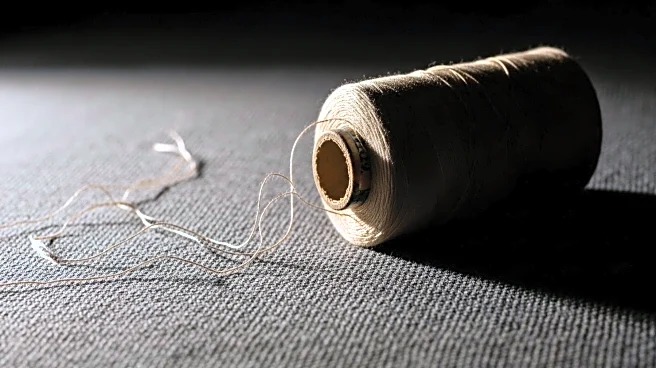What's Happening?
The U.S. textile industry is grappling with the impact of tariffs imposed under President Trump's trade policies. These tariffs, part of the 'America First' agenda, aim to correct trade imbalances but have inadvertently put domestic textile and apparel supply chains at risk. The industry, which employs over 470,000 American workers and generates $64 billion annually, relies on certain imported inputs and machinery not available domestically. The tariffs on these imports, coupled with reciprocal tariffs from trade partners, threaten to undermine U.S. manufacturing jobs and national security, as many producers supply to the PPE and Department of Defense markets.
Why It's Important?
The tariffs are significant as they could lead to increased offshoring, weakening the U.S. textile industry's competitiveness. This situation poses a risk to national security, given the industry's role in supplying military gear and PPE. The tariffs also threaten the economic stability of U.S. producers and cotton farmers, as they face penalty tariffs on imports from Western Hemisphere trade partners. The industry's call for policy refinements, such as tariff carve-outs for unavailable inputs and machinery, highlights the need for precise trade policies to support domestic manufacturing and secure supply chains.
What's Next?
The U.S. textile industry is advocating for policy changes to mitigate the adverse effects of the tariffs. These include removing penalty tariffs on qualifying imports and ensuring long-term tariff certainty to encourage reinvestment. The industry also seeks to expand the 'Buy American' Berry Amendment to cover all federal agencies, supporting U.S. workers through government procurement. These steps aim to bolster American manufacturing and create jobs, but require strategic policy adjustments from the administration.










